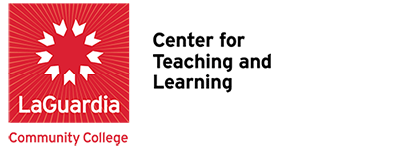From the Center

Happy 2022! January’s Notes offers readers a look into the CTL’s Staff Reading Collective (SRC), a bi-monthly seminar for reading and discussing meaningful texts, most recently Paulo Freire’s Pedagogy of the Oppressed, as vital now as when published in 1970. The Reading Collective members (see HIghlights, below) are CTL mentoring program and data coordinators, and front office staff. We are all LaGuardia alums and CUNY grads, familiar with LaGuardia’s expectations and culture. We’ve shared the challenges and successes of first-generation, new-majority learners and we bring this knowledge to our work. Our personal and professional interests are diverse. We are graduate students or applicants; some are completing undergraduate degrees, others are pursuing careers in the arts. We are all committed to our personal and professional growth. Despite COVID’s persistent distancing effects, The Reading Collective has sustained our relations to each other and invigorated the ways we think about education, media, and how we wish to be in our shared world.
When COVID hit in March 2020, the College rapidly adapted to a remote format. Rethinking instructional design, the CTL trained faculty and staff in new technologies and approaches to asynchronous classes and professional development seminars. As virtual exchange replaced face-to-face communication, we wondered if “being human” would change, too. Such questions shaped our 2021 reading theme: Are humanism and technology at odds? Pressured by an increasingly technological future, what will happen to our values, biology, and beliefs? In a post-human world, who might we become? Our first guide was Kazuo Ishiguro’s Klara and the Sun, a dystopian novel whose central character is an “artificial friend,” a robot assigned to assist a young human girl whose genes have been engineered to “lift” her above ordinary people in a society shadowed by fascism. Our second book, Freire’s Pedagogy of the Oppressed, pre-dates Zoom by over fifty years. Its concern is not the virtual world but rather the earth-bound realities of dehumanization, injustice, inequity, and exploitation, themes that concern Ishiguro, too (for a discussion of Klara see Being Human in a Digital World September 23, 2021).
The Reading Collective videos offered in this month’s Notes reflect our search for ties between Freire and our personal upbringings and professional work. As social beings, do we recognize our “internalized oppressor”? As educators, are we creating student-centered, dialogic, problem-based classrooms, or passivity-inducing, sage-on-the-stage “banking” pedagogies? As colleagues and mentors, can we commit to conscientização? Increase equity, honesty, and hope? Reduce fear of freedom? Inspired by Freire, we will continue to identify contradictions in ourselves and dogma in the institution. Next up for The Reading Collective? A February viewing of Raoul Peck’s Exterminate All the Brutes, and throughout 2022 we will read and discuss Cathy Davidson’s The New Education: How to Revolutionize the University and Prepare Students for a World in Flux, and bell hooks’ Teaching to Transgress. Stay posted!
Oscar Cortes coordinates the CTL’s Tech 2.0



